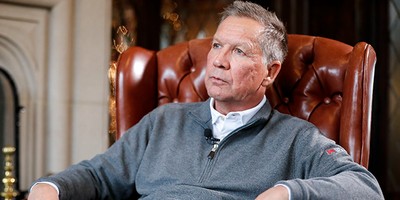Editor's Note: Steve Chapman is on vacation. The following column was originally published in April 2007.
New Year's Day is called that because it begins a new year, and Thanksgiving has that name because it's an occasion for expressing gratitude. But Equal Pay Day, observed this year on April 24, is named for something that, we are told, doesn't exist -- equal pay for men and women.
The National Committee on Pay Equity used the occasion to announce that among full-time workers, women make only 77 cents for every dollar paid to men. The three leading Democratic presidential candidates have all endorsed legislation to fix the problem.
And the effort got new fuel from a report by the American Association of University Women (AAUW) Educational Foundation, which says women are paid less starting with their first jobs out of college, and that the deficit only grows with time. Pay discrimination, says AAUW, is still "a serious problem for women in the work force."
In reality, that's not clear at all. What we know from an array of evidence, including this report, is that most if not all of the discrepancy can be traced to factors other than sexism. When it comes to pay equity, we really have come a long way.
On its face, the evidence in the AAUW study looks damning. "One year out of college," it says, "women working full-time earn only 80 percent as much as their male colleagues earn. Ten years after graduation, women fall farther behind, earning only 69 percent as much as men earn."
But read more, and you learn things that don't get much notice on Equal Pay Day. As the report acknowledges, women with college degrees tend to go into fields like education, psychology and the humanities, which typically pay less than the sectors preferred by men, such as engineering, math and business. They are also more likely than men to work for nonprofit groups and local governments, which do not offer salaries that Alex Rodriguez would envy.
Recommended
As they get older, many women elect to work less so they can spend time with their children. A decade after graduation, 39 percent of women are out of the work force or working part time -- compared with only 3 percent of men. When these mothers return to full-time jobs, they naturally earn less than they would have if they had never left.
Even before they have kids, men and women often do different things that may affect earnings. A year out of college, notes AAUW, women in full-time jobs work an average of 42 hours a week, compared to 45 for men. Men are also far more likely to work more than 50 hours a week.
Buried in the report is a startling admission: "After accounting for all factors known to affect wages, about one-quarter of the gap remains unexplained and may be attributed to discrimination" (my emphasis). Another way to put it is that three-quarters of the gap clearly has innocent causes -- and that we actually don't know whether discrimination accounts for the rest.
I asked Harvard economist Claudia Goldin if there is sufficient evidence to conclude that women experience systematic pay discrimination. "No," she replied. There are certainly instances of discrimination, she says, but most of the gap is the result of different choices. Other hard-to-measure factors, Goldin thinks, largely account for the remaining gap -- "probably not all, but most of it."
The divergent career paths of men and women may reflect a basic unfairness in what's expected of them. It could be that a lot of mothers, if they had their way, would rather pursue careers but have to stay home with the kids because their husbands insist. Or it may be that for one reason or another, many mothers prefer to take on the lion's share of childrearing. In any case, the pay disparity caused by these choices can't be blamed on piggish employers.
June O'Neill, an economist at Baruch College and former director of the Congressional Budget Office, has uncovered something that debunks the discrimination thesis. Take out the effects of marriage and childrearing, and the difference between the genders suddenly vanishes. "For men and women who never marry and never have children, there is no earnings gap," she said in an interview.
That's a fact you won't hear from AAUW or the Democratic presidential candidates. The prevailing impulse on Equal Pay Day was to lament how far we are from the goal. The true revelation, though, is how close.
























Join the conversation as a VIP Member